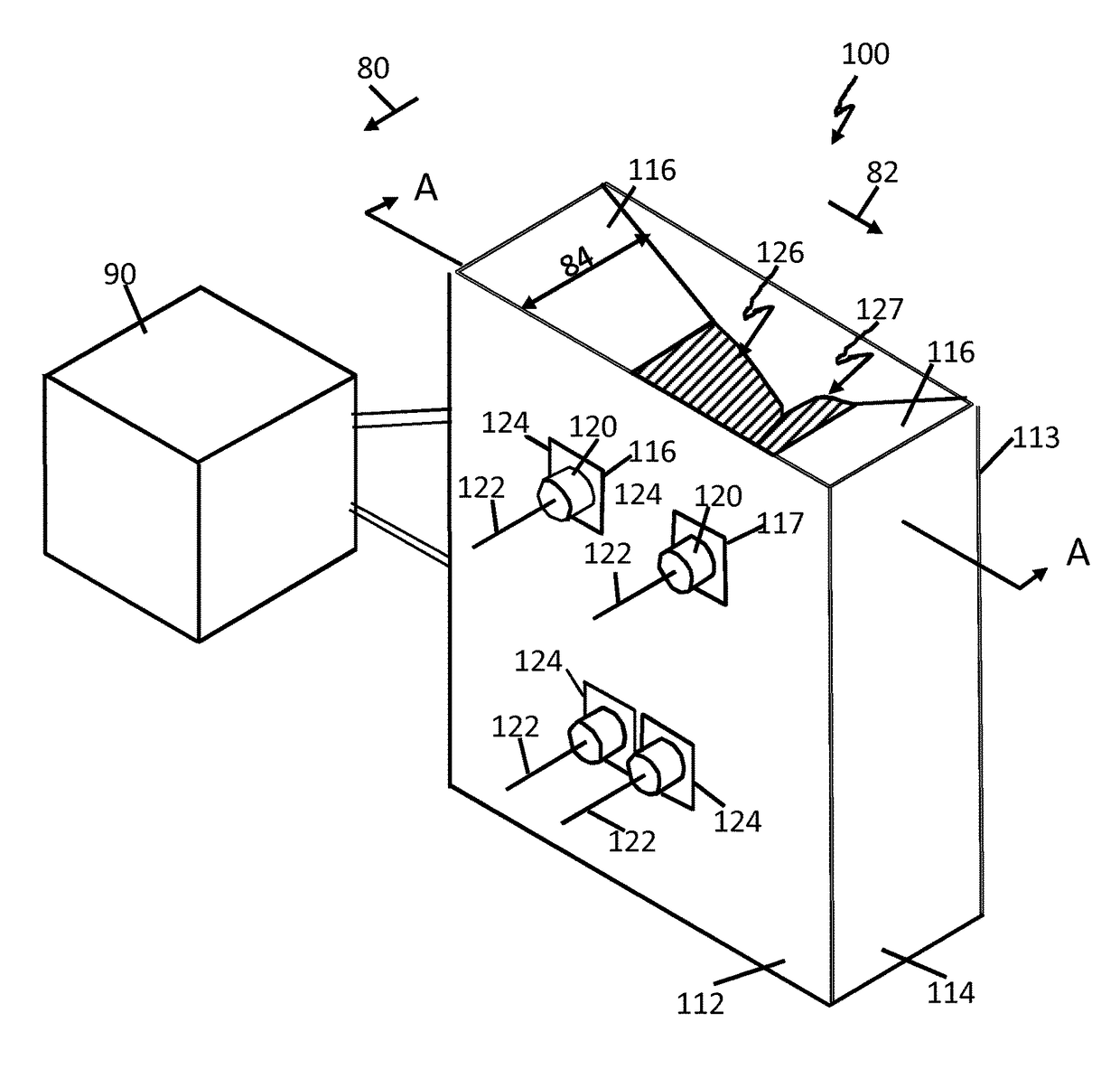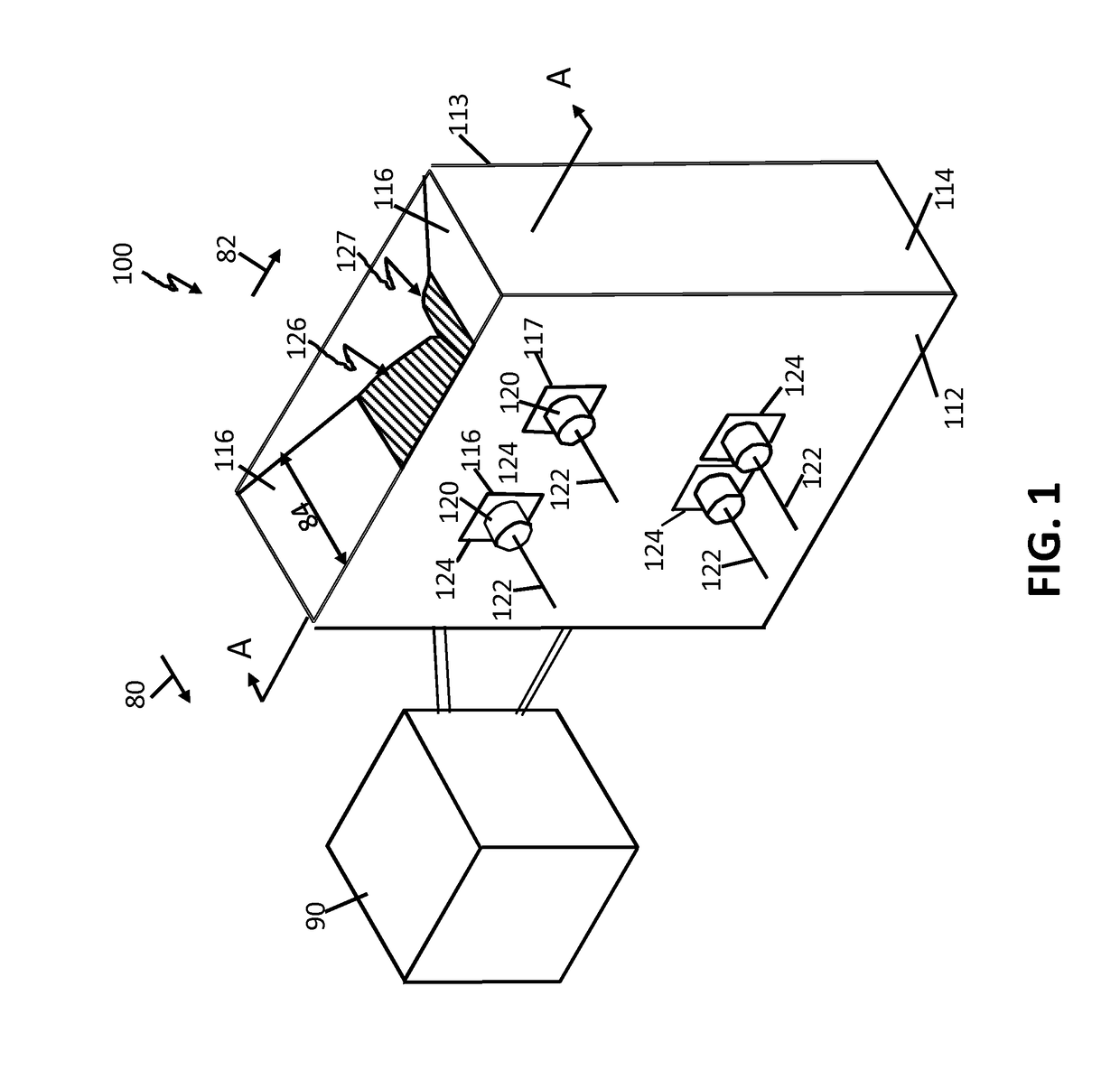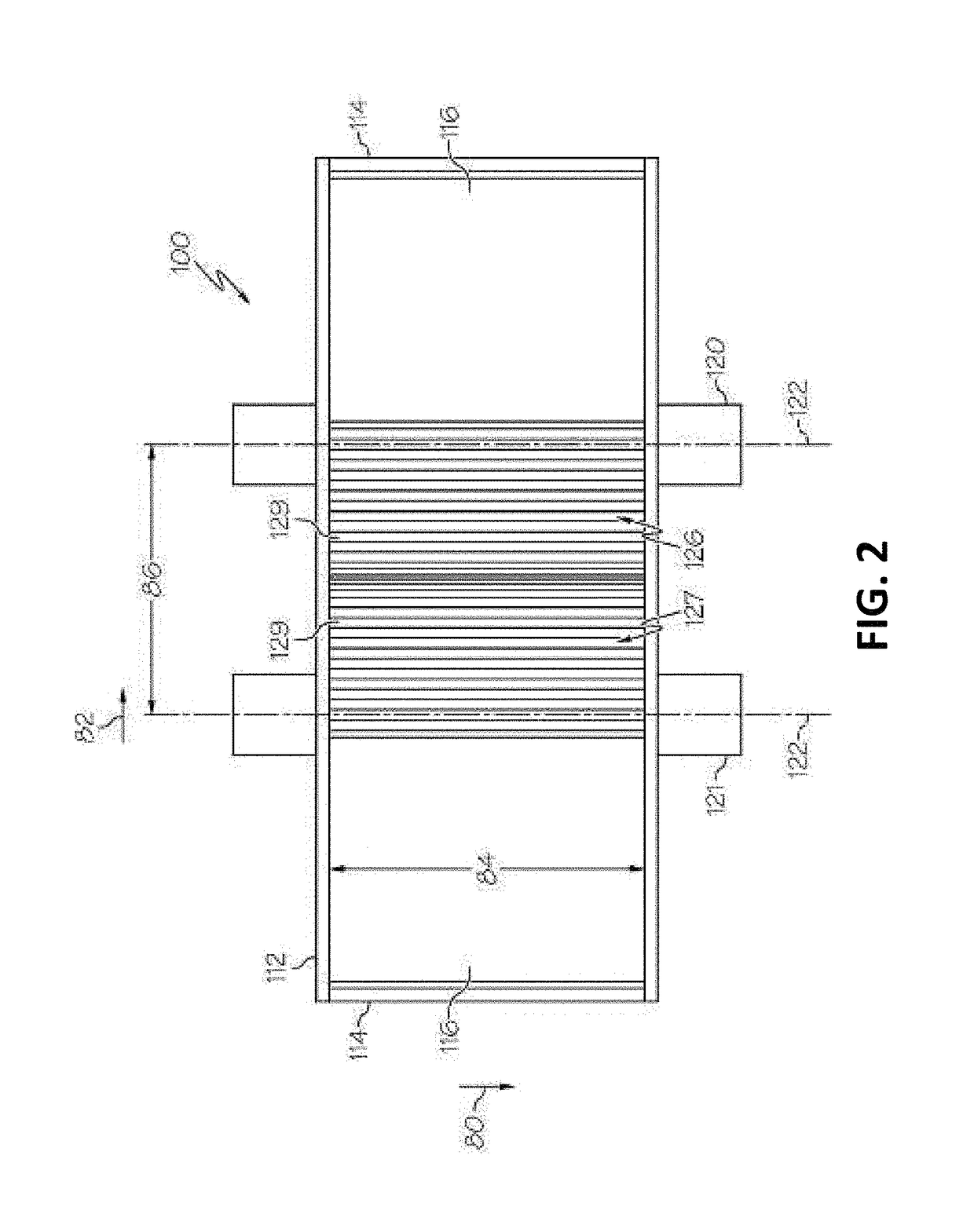Grain crushing apparatuses and processes
a technology of crushing apparatus and grain, applied in the field of agriculture related equipment, can solve the problems of increasing the wear and tear of the roller, unsuitable for consumption, and particles of varying sizes that are not suitable for consumption by humans, livestock, etc., and achieves the effects of increasing the shelf life of crushed grain, reducing waste of food, and reducing the use of machinery
- Summary
- Abstract
- Description
- Claims
- Application Information
AI Technical Summary
Benefits of technology
Problems solved by technology
Method used
Image
Examples
Embodiment Construction
[0062]Embodiments of the previously disclosed invention are directed to grain crushing apparatuses for processing grain from whole kernels into smaller particulates, including processing whole grains into meal or flour. The grain crushing apparatuses include a mill body having a first sidewall and a second sidewall spaced apart from one another in a first direction, a first support shaft and a second support shaft positioned transverse to the first sidewall and the second sidewall. The first support shaft and the second support shaft are each configured to rotate about an axis of rotation and are rigidly spaced a spacing distance apart from one another. The grain crushing apparatus also includes a first grain crushing roller and a second grain crushing roller, each including a plurality of teeth extending from a root a tooth height, where the respective grain crushing rollers are coupled to the support shafts such that the first and second grain crushing rollers are intermeshed with...
PUM
 Login to View More
Login to View More Abstract
Description
Claims
Application Information
 Login to View More
Login to View More - R&D
- Intellectual Property
- Life Sciences
- Materials
- Tech Scout
- Unparalleled Data Quality
- Higher Quality Content
- 60% Fewer Hallucinations
Browse by: Latest US Patents, China's latest patents, Technical Efficacy Thesaurus, Application Domain, Technology Topic, Popular Technical Reports.
© 2025 PatSnap. All rights reserved.Legal|Privacy policy|Modern Slavery Act Transparency Statement|Sitemap|About US| Contact US: help@patsnap.com



